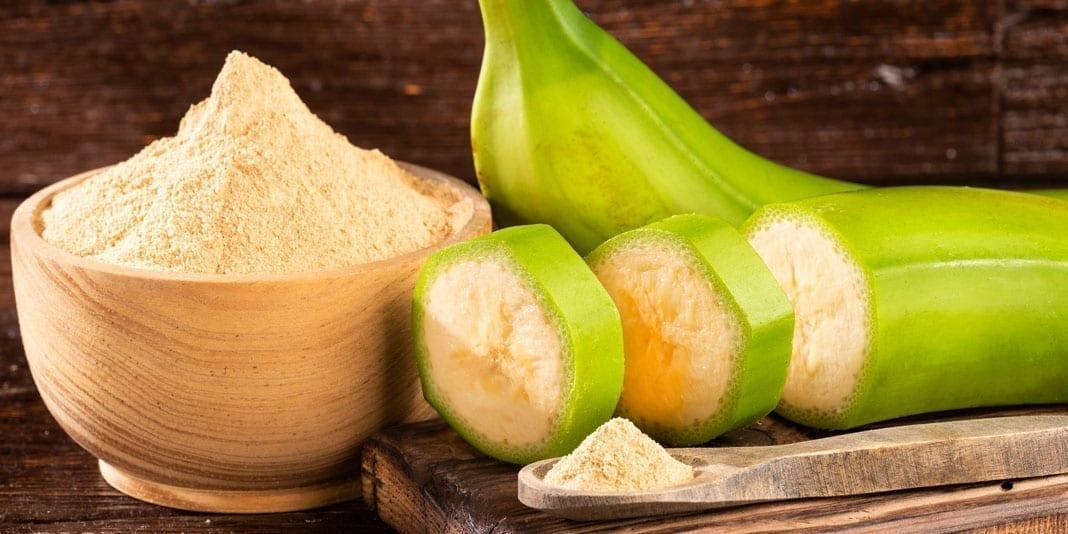As many people are looking to replace flour with gluten-free options, flour made from fruits and vegetables is growing in popularity. Stores are now carrying apple flour, beet flour, coconut flour, and more healthy options. Joining the list of wheat-free alternatives is banana flour. A staple in Jamaica, Haitian, and West African cooking, this flour can be used for cooking and baking. Its growing usage worldwide is thanks to its many health benefits and versatility.
To create this flour, unripe green bananas are either cooked or dried and then milled. Since the bananas aren’t ripe yet, they are not full of glucose, making the flour low in sugar.
It is packed with resistant starch, a great source of prebiotics. While probiotics help to restore good bacteria in the gut, prebiotics provide them with their fuel. Additionally, banana flour has insoluble fiber, which is a probiotic. This can help with digestion, IBS, and more.
Because resistant starch does not get broken down in the intestines, it also helps lower blood sugar levels and insulin sensitivity.
Of course, banana flour also has potassium. This helps with heart health and blood pressure. Additionally, it’s packed with zinc, which supports your immune system. Magnesium, phosphorus, and manganese can also be found in it.
Another potential benefit is that it may work as an aid for weight loss. The resistant starch requires your body to use more effort to break it down into energy, thus burning more calories. It slows down digestion and keeps you full for a longer time. Additionally, the stabilization of your blood sugar will help with the cravings!
Remember when cooking with banana flour that it is high in starch, so you will need about 30% less than if you were using regular flour. You can also use it to thicken soups and smoothies while still getting all the nutrition.




































